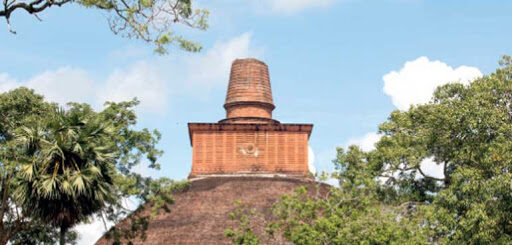SPUR Media Release on INDO-SL accord….27/7/87
The“17th Invasion of Sri Lanka by India in the Island’s 2500 Year History.”
Harking back, one can conclude that 29th July 1987 was one of the darkest days in the history of Sri Lanka as it was the day on which India invaded Sri Lanka and forced the then Sri Lankan government to sign the infamous ‘Indo – Lanka Accord’.
Prior to that dark day, the Indian Premier Rajiv Gandhi and Minister Natwar Singh had warned Sri Lanka of dire consequences if the Sri Lankan military action against the terrorist LTTE was not called off. Sri Lanka’s foreign minister sent a message to the UN Secretary General advising that Sri Lanka was facing an imminent threat to its independence, sovereignty and territorial integrity. The Sri Lankan President called the violation of Sri Lankan air space by India ‘the 17th invasion of Sri Lanka by India in her 2500 years of history’.
Sri Lanka was left in the lurch by the world community at large except by a few nations in Asia and was forced to sign the Indo –Sri Lanka agreement on 29th July 1987 as per the conditions stipulated by India. The agreement did not receive the consent of the people of Sri Lanka nor the approval of its democratically elected Government but was signed during a 48 hour curfew period.
India forced Sri Lanka to merge its Northern and Eastern provinces in order to create a Tamil majority area legitimising the myth that the area covered the traditional homeland of the Sri Lankan Tamils. As a consequence, the 13th Amendment to the Constitution was introduced on the 14th November 1987. Further, the agreement attempted to reduce Sri Lanka to a satellite state of India by negating Sri Lanka’s sovereign right to make decisions with regards to the Trincomalee harbour and forcing Sri Lanka to accept India to be the de-facto partner in developing the tank farm there.
The Indo Lanka agreement promised to usher in a period of peace in Sri Lanka. However the Indian intervention resulted in one of the most violent and brutal periods in Sri Lanka’s history with two insurrections, namely the LTTE against the Indian peace keepers and the JVP’s against the Sri Lankan forces occurring simultaneously. Ironically, having trained and armed a number of Tamil Terrorist groups, India was also forced to fight the most ruthless of them all, the LTTE. The people of Sri Lanka would not have forgotten that Vartharaja Perumal, the head of the Indian ‘puppet administration’ of the merged North & East, unilaterally declared a state of Tamil Eelam and fled to India.
The Indian military intervention under the guise of ‘peace keeping’ served no purpose other than its own objective of introducing hegemony over its island neighbour. In time, the IPKF came to be known to Tamil Sri Lankans as the ‘Indian People Killing Force’. Among the many atrocities attributed to the IPKF were the massacre of 68 Tamils including doctors, nurses and patients at the Jaffna Hospital in October 1987 as well as numerous cases of rape and plunder of the very people they claimed to have come to protect.
Looking back, the Indo-Sri Lanka agreement failed to meet its objectives and India failed miserably to deliver her undertakings. Like the vast majority of Sri Lankans, we too are looking forward to the day when President Mahinda Rajapakse backed by the elected representatives of the people annuls this infamous agreement and restores the sovereign rights of Sri Lanka.
Ranjith Soysa (Spokesperson)



